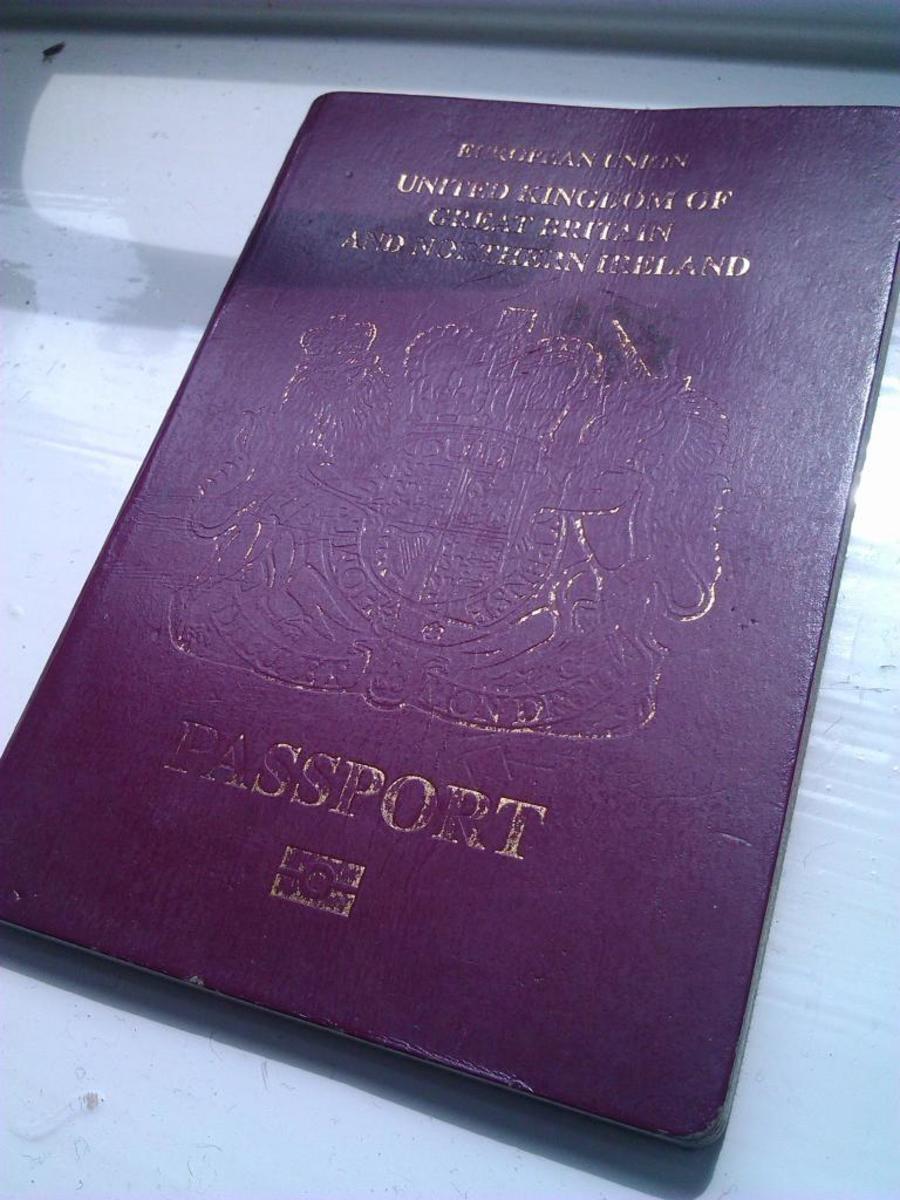How to travel with pets to the UK?
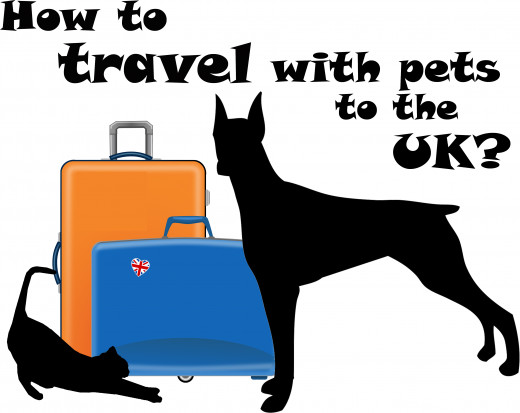
The United Kingdom
Own experiences
Travelling with pets within countries had never been easy – and probably it was always the most difficult to get into the United Kingdom with your beloved pet.
I had to overcome this issue this year, in 2012, when we decided to move into the UK from Hungary. I spent loads of time to check all the rules and necessities what we have to get before packing everything. There are many webpages on the internet that are helpful, but still none of them were able to answer some of my questions, so I had to contact Hungarian and English vets and DEFRA itself as well (DEFRA is an UK government department that is responsible for policy and regulations on the environment, food and rural affairs). Luckily, since the 1st of January, 2012 travelling with your animal became easier as the UK’s government decided to annul the titre test (a compulsory blood test to ensure that rabies vaccination was effective and your animal is completely protected against the disease) for pets from EU countries. This also ensures that your pet can enter the country without quarantine, provided they meet the rules of the travel scheme and have all the required checkups, vaccinations and documentation. Of course, the pet travel scheme is different depending on from where you are coming to the UK.
In the following please find all the information provided according to my experiences you need to know before getting ready to travel with your pets.

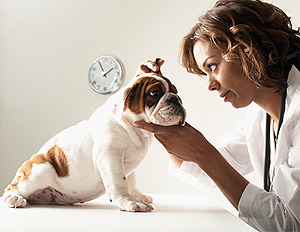
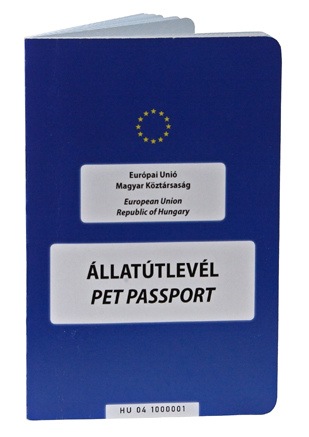
Travelling to the UK from EU and from other listed countries
- Microchipping: Have your pet microchipped by a vet to make sure that your pet can be properly identified when needed. Ask the vet every time you pay them a visit to scan the chip so you can be sure that it is working like a dream. This will be an important issue when you arrive to the UK, as the staff there will scan the microchip. – We travelled by car through the EuroTunnel and the cats were checked before getting into the train. If the staff there finds any problem with the pet, they won’t even let you enter the country until you make sure everything is fine with your animal.
- Pet Passport: This is the most important documentation your pet needs from an EU country. Its information page must be properly filled in, each Rabies vaccination and tapeworm treatment must be documented in it and the information about the microchip in your pet must also be provided in this document.
- Rabies vaccination: The UK is very proud that there have been only 25 rabies cases reported in the country since 1946 (included the most recent one in a human in May, 2012). Therefore they are very strict with this disease, so you must make sure to get your pet vaccinated against rabies NOT LESS THAN 21 days before travel. There is no exemption to this treatment or the day count, so triple check the date since the vaccination. Rabies boosters must also be kept to date, so if your pet got rabies vaccination a long ago, check the expiratory date of the treatment. If the rabies vaccination was given in 2 parts to your animal, the 21 days must be counted from the second one. – As I said this is the most important part during the travel, the staff before the EuroTunnel triple(!) checked the vaccination dates of our pets. By the third time I started to worry, but finally it turned out everything was correct so we were allowed to get onto the train.
- Plan your approved travel route: When planning your trip make sure you choose and approved transport company that will travel on an authorised route. It is also advised to book your train tickets in case you are travelling with EuroTunnel as there are usually only a few places left. You must report that you are travelling with a pet and book a ticket for them too. – We had some difficulties to find a proper transport company that also carries pets. So I advise everyone to spend some time to find the best and most suitable travel route and company for you and your pets.
- Tapeworm treatment for dogs: All dogs must get proper tapeworm treatment before entering the UK. You also have to make sure that the treatment had been given not less than 24 hours (1 day), but not more than 120 hours (5 days) before your pet enters the UK. If you arrive less than 24 hours, you must wait until the 24 hours are passed. But if you arrive after 5 days have passed, you have to search for a local vet and get tapeworm treatment again, plus you have to wait 24 hours as stated before. It is also very important to have the tapeworm treatment documented in your pet passport by the vet, otherwise it will not be recognised by the authorities. – We travelled by cats, but had both of them treated against tapeworm as I found it much safer and a responsible animal owner must have their pets treated every 3 months anyway.

Airline approved pet carriers:
Travelling to the UK from unlisted, non-EU countries
Make sure you have all the above steps carried out. Also, you must have your pet blood tested (this step was annulled since the 1st of January, 2012 for all EU and listed countries, but remained compulsory for unlisted and non-EU countries). This test will prove that your pet was properly vaccinated and is completely protected against the disease. The blood test must be taken at least 30 days after the rabies vaccination. After this, you have to wait 3 calendar months (from the date the blood test was taken – assuming the test gave a satisfactory result) with your pet before travel. If your country does not apply Pet passports, you must obtain and official third country veterinary certificate instead of the passport – but make sure you have all the necessary treatments documented.
Books on Amazon about pet travel

Additional Q&A
1 .Q: Do I have to wait 21 days even if my pet gets a rabies booster?
A: Yes, you have to wait 21 days after each rabies vaccination, no matter if it was their first rabies vaccination or a booster.
2. Q: I had my pet vaccinated against rabies and blood tested in an EU country, but now I live in a non-EU country. Do I have to wait 3 months as well?
A: No, you don’t have to wait 3 calendar months, assuming you always had your pet protected against rabies, so boosters were given before the expiratory date of the previous vaccinations.
3. Q: I own a ferret. How can I enter the UK with my animal?
A: The same rules apply for a ferret. So you must have your pet vaccinated against rabies, get proper tapeworm treatment, have it microchipped, accompany them by proper documentation and arrive to the UK on an authorised route with an approved travel company.
4. Q: Now I live in the UK with my pet. We arrived from an unlisted country, so we only have a veterinary certificate, but not a Pet Passport. Can I apply for a Pet Passport here?
A: Yes, you are recommended to apply for a Pet Passport. This document will be issued according to your official veterinary certificate and its records.
5. Q: I am planning to relocate to the UK but I have 6 pets altogether. Am I allowed to do that?
A: Yes, you are allowed, but you must ask one of your family members to travel with you, as only 5 pets are allowed to travel per person, unless you are taking part in a competition or show with them. Regardless the pet number, you have to provide them with the necessary treatments and documents listed above.
6. Q: I am planning to bring 7 of my cats to a Cat Show in the UK. What do I have to do?
A: First of all, you must ask someone to travel with you, as only 5 pets are allowed to travel per person. Regardless the pet number, you are advised to provide them with the necessary treatments and documents listed above. Also, you must apply for a specific health certificate issued by the Animal Health and Veterinary Laboratories Agency to get to the UK. This application must be made 10 working days prior to the date of travel.
7. Q: If I am right, cats don’t have to get tapeworm treatment to be allowed to get into the UK. Is this true?
A: Yes, it is true. Though you are advised to get this treatment for your cat, as in the UK responsible animal care states you must have your cat treated against tapeworm every 3 months.
8. Q: My pet was vaccinated against rabies before they got a Pet Passport. Is this vaccination valid now?
A: Sadly, no, as your pet was vaccinated against rabies before you got the passport, so the vaccination is not registered in it. You must have the pet re-vaccinated and wait 21 days.
9. Q: My pet was vaccinated against rabies. The vaccination will expire a few days before travel according to the Pet passport and my country’s regulations, but on the manufacturer’s data sheet it says vaccination is supposed to be valid for longer. Do I have to have my pet vaccinated again? Or should I overwrite the date in the passport?
A: Yes, you have to vaccinate your pet again, ideally before the expiratory date. In your Pet passport the date was written according to your country’s regulations, no matter if it is different from the one on the manufacturer’s data sheet. As it is the official date provided by your vet, you are not allowed to overwrite it.
Getting ready
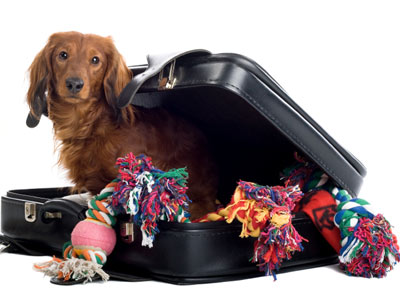


Preparing for travel
For a convenient travel experience for both you and your pet you must obtain the following items:
- Pet carrier, that is great enough for your pet;
- Drinking bowl, if applicable one that can be fixed onto the pet carrier;
- Water and dry pet food for the entire route (if you go by car);
- Blankets or bedding for your pet to make sure they will not suffer in the pet carrier during the long travel hours;
- Some toys for your pet to play with in the carrier;
- A leash for your dog to take them out while drivers are taking a short break;
- Disposable pet nappies to make sure the pet carrier remains neat and clean during all the travel;
- Paper towels, just in case.

Checklist before travel
- Is the pet microchipped?
- Is it currently vaccinated against rabies?
- Have at least 21 days passed since its last rabies vaccination?
- Does it have a Pet Passport?
- Was the vaccination and every treatment documented in the passport prior travel?
- Are you travelling through an approved route with an authorised travel company?
- Has your vet treated your dog against tapeworm (1-5 days prior to travel) and did they record the treatment in the Pet passport?
If you answered all the above questions with a yes, congratulations, you and your pet are both prepared to travel to the UK :).

Good luck!
I hope with this article you will get all the necessary information you might need to travel with your pet to the UK. Please be advised to check and read over the official DEFRA website prior your travel, as rules stated above can be subject to change. Have a happy and safe travel! :)
My sweethearts in our new home :)


Pet travel accessories
Useful links
- EuroTunnel site: http://www.eurotunnel.com/uk/home/
- Information on Rabies: http://www.hpa.org.uk/Topics/InfectiousDiseases/InfectionsAZ/Rabies/GeneralInformation/ClassicalRabiesFAQs/
- Official DEFRA site about pet travel: http://www.defra.gov.uk/wildlife-pets/pets/travel/pets/pet-owners/
- Authorised travel routes to the UK: http://www.defra.gov.uk/wildlife-pets/pets/travel/pets/routes/

Share your ideas!
Please feel free to comment on this hub, your feedback is very much appreciated!
Or, if you feel that you can write fresh, new ideas about this or a similar topic, just join our community and start writing!
© Copyright 2012-2014, Zsofia Koszegi-Nagy (zsobig)
How to travel with your pet? - 5 tips

My latest works on HubPages:
- Top 10 dogs that get on well with children
Have you ever wondered whether it is advised to get a dog for the children in the family or not? Here is a little bit of information on the topic and a list of 10 dogs that get on excellently well with children! - Help! Fleas! Tips on how to get rid of fleas in your house and on your animals
Fleas often cause problems for pet loving people, as our animals tend to bring these insects into our home without any sign. Sadly, it is not easy to get rid of them, but in this article you can find a few tips and useful tools to face the problem. - Tips on how to find a reputable dog or cat breeder
Loads of people fall into the trap of pet mills and other questionable 'breeders' and sadly, they regret this most of the time. In this article I've collected all the important things you have to know on how to find a reputable dog or cat breeder. - Top 10 dogs that need little exercise - not just for lazy dog lovers
You love dogs, but you are busy most of the time? You WANT a pet, but you are unable to go for regular walks with them and just want to play with your dog inside your home if possible? If you do, here's a top10 list of dogs, that need only a little e - Purebred breeders and pet mills - what are the diffe...
Are you fond of animals and condemn those people who let their animals suffer? So would you buy a pet from a breeding mill? I hope not. In this article you can find out what you should look out for when buying your pet from a breeder. - Tips on how to teach your dog to play fetch
Having a dog is not always an easy thing... particularly not easy if your dog cannot play fetch. Therefore here are a few tips on how to teach your dog to play fetch - I hope you will make good use of them.
© 2012 Sophie







